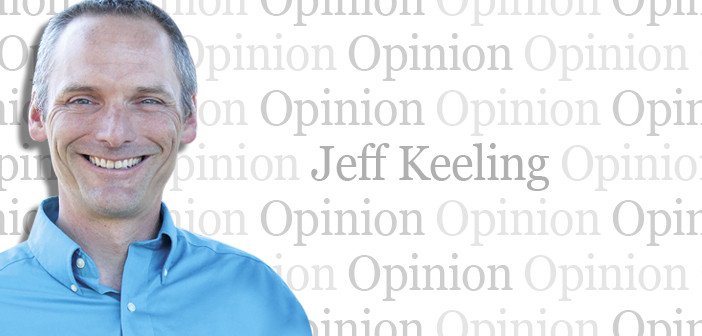By Jeff Keeling
If you are paying attention to Johnson City commissioners as they wrestle with the fiscal 2016 budget and the question of whether to raise property taxes, I have one suggestion: Do not envy them.
For the past seven years, we have lived in a “new normal” of slow to no economic growth, nationally and locally. Read on in this column, and you’ll see what that’s meant in the way of job numbers – certainly the best driver of growth – in Washington County.
Compared to the rest of the country, this county and this larger metro area aren’t faring well, and when the country isn’t faring so well as a whole, performing below average is unsettling. And it makes governing effectively, wisely and in a way that satisfies constituents much more difficult.
No one wants his taxes raised, and that sentiment becomes even stronger when “times are hard.” Yet when times are hard, the revenues needed to provide the services and amenities that make a city a good place to live are ever more difficult to come by without raising tax rates. Such is the conundrum faced by our city commission, and hundreds of other local governments around the country.
Whatever their predispositions toward taxes and spending may be – and those predispositions are pretty clear to the careful observer – the four men and one woman representing taxpayers give every indication they are sincerely striving to do their best for the city. After Monday’s second of three readings of the budget ordinance, I would put the smart money on a property tax increase somewhere in the 10 to 25 cent range per $100 of assessed value. That is below what commissioners Ralph Van Brocklin and Jenny Brock think the city needs, but on the high side of anything the three other commissioners have expressed comfort with.
Since jobs and labor force growth are the best signs of a healthy community, consider the following factors impacting our commissioners’ deliberations:
In 2008, according to U.S. Census Bureau data, Washington County’s labor force was 62,100, and the total number of people employed was 58,540. In 2011, immediately after the recession ended and largely on the strength of government spending, the labor force had risen to 64,990, and employment was at 59,900. Unemployment was up, but so were jobs and the number of people seeking them.
In 2014, the labor force total was down 12 percent from 2011, to 57,120. Job totals were at 53,490, down 10.7 percent. Even with the unemployment rate down, these are not signs of a growing economy. During that same 2011 to 2014 period nationally, the labor force is up 1.5 percent. Job totals are up 4.6 percent.
The divergence in national and local job trends is distressing and makes our commissioners’ deliberations more difficult. Money can help improve education and health, two key ingredients to creating an attractive climate for new jobs and two factors in which Tennessee and our area lag behind the nation, but raising taxes in difficult economic times is hardly palatable. When my parents were in town for our daughter’s wedding recently, my mom and I were talking about how all of us have “stuff” in our lives that impacts our decision-making, sometimes even subconsciously. Our decision-making, of course, affects others. Mom recalled her grandmother saying this about her daughter – my mom’s mother – and the decisions she made when my mom was growing up that sometimes made my mom’s life more difficult.
“She did the best she knew how at the time,” or words to that effect, are what my great-grandma, who outlived her daughter, told my mom. In other words, grandma wanted good for those around her, even if the decisions she made sometimes produced less good than other decisions might have.
My own stuff – my passions, my biases, my blind spots – greatly impacts my decision-making. Whenever my “stuff” is combined with less-than-ideal factors outside my control, such as financial difficulties, decision-making becomes all the harder.
Our city commissioners are people. Ergo, they have stuff. They’re also faced with difficult circumstances outside their control as they make decisions about budgets, revenues and taxes. I hope their final decision proves a healthy one for our city’s future, but I don’t envy them one little bit as they conclude their task.





